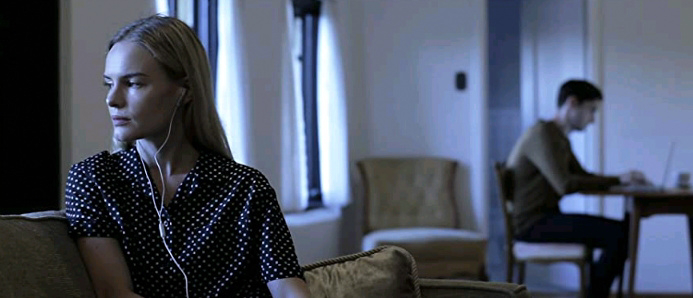As far as Deborah Kerr (Kerr rhymes with ‘star’) was concerned, audiences around the world believed she was an angel. She was born in Scotland in 1921, won a scholarship to the Sadler's Wells Ballet School, and at seventeen made her London debut in the corps
de ballet of Prometheus. She soon realized her frame
was a too bulky and felt it was her face she’d have to work with. Director Michael
Powell met her in an agent’s office and decided to write a part into Contraband
(1940) for ‘a plump little dumpling who was obviously going places’.
The ‘little part’ was eventually cut and it was a swan (who grew out of the dumpling) that was spotted by producer Gabriel Pascal, who in fact approached her in a restaurant and called her a ‘sweet virgin’. He cast her as a Salvation Army lass to be slapped around by Robert Newton in Major Barbara (1941). She slapped so photogenically that four more films followed within the next twelve months. Then, in 1942. Michael Powell cast his ‘little dumpling’ again in The Life And Death of Colonel Blimp, and a new star was discovered, In the film she played three archetypes of English womanhood - a governess circa 1900, a country-family debutante in the 1920s, and an Army Corps girl in the Second World War.
She was good. but
she was even more impressive in colour. Deborah Kerr’s natural colouring would
have given Renoir a fit of the shakes. In sumptuous Technicolor she shone from
the screen. Metro British were immediately determined to capture this new face,
and MGM in Hollywood were alerted. Three films later she was on her way to
America with a contract that raised the film industry’s temperature - seven
years at $3,000 a week, no options, and she was to star or co-star in all the films.
Two of the films she made before leaving for a life and, like Jean Simmons, an international career, were an off-beat and cleverly made comedy-thriller about Nazi spies in Ireland called I See a Dark Stranger (1946) (in which the leading part was specially written for her) and then back to Technicolor in the striking, mesmerizing Black Narcissus (1947). Oscars were awarded for both the design and colour photography. Set in the Himalayas, it was all shot in Surrey, with Deborah Kerr playing the first of several nun roles.
Hollywood now owned a ‘romantic Englishwoman’ and much to her relief they were careful not to change her image. She loved her life in the film capital, stating many times that being at MGM was like being a member of a very special club. Indeed, through being a member, she managed to get strong roles that saw her nominated for a Best Actress Oscar six times.
Deborah Kerr remained a star throughout her screen career. She even admitted she was an instant star and had to work to become a fine actress. As governesses, nuns, anguished wives, strong mothers, one nymphomaniac and one alcoholic, she managed to make world audiences laugh and cry and made them forget at times that she was ever an English rose. In fact, when asked what she would like film historians to say about her, she replied quickly, ‘I would like them to say I was not an English rose’.
A request that would have had the very real sympathy of five other fine British actresses.


























































